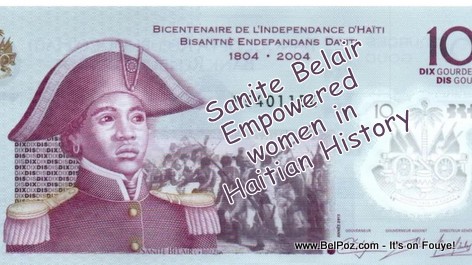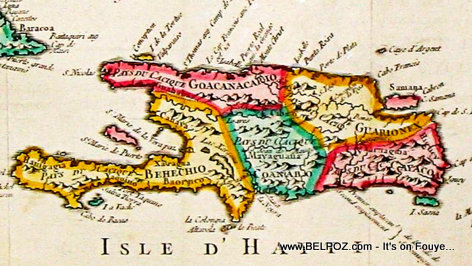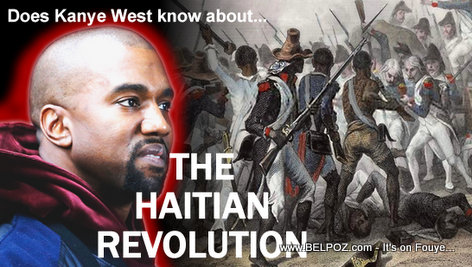Haitian History
Sanite Belair, one of the top 10 most powerful women in Haitian History
Sanité Bélair (1781-1802) was a courageous and influential figure during the Haitian Revolution. As the wife of Charles Bélair, a Haitian revolutionary leader, she actively participated in combat and displayed exceptional leadership skills.
Sanité fought alongside her husband, leading troops and inspiring fellow fighters to resist French colonial rule.
Her bravery and unwavering commitment to the cause earned her the admiration of her compatriots.
Death of Sanite Belair
Tragically, she was captured and executed by the French forces in 1802. Sanité Bélair's legacy lives on as a symbol of women's pivotal role in the fight for Haitian independence and freedom.
Sanité Bélair's enduring impact and significance in Haitian history are further exemplified by her recognition on Haitian currency.
Sanite Belair's image has been featured on Haitian money. This is the image of Sanite Belair on the 10 gourdes Haitian paper money, a testament to her influential role as a symbol of courage and resistance during the Haitian Revolution.
Isle d'Hayti, old Haiti Island and the History behind the name change
Here is a very old map of of Isle D'Hayti or Haiti Island as she was called before Isle de St Domingue during colonization and Hispaniola much later. Read this and learn.
A little bit of History about Isle D'Hayti or Haiti Island:
When Christopher Columbus arrived and took possession of the island in 1492, he named it Insula Hispana in Latin and La Isla Española in Spanish, with both meaning "the Spanish island".
Of course, Columbus the colonizer was Spanish!
Bartolomé de las Casas, Spanish colonist who was the only acting historian in the island back in the 16th-century shortened the name"La Isla Española" to simply "Española".
Peter Martyr d'Anghiera, Italian-born historian known by many names, was the first writer to use the word "Hispaniola" to refer to Isle D'Hayti or Haiti Island in his accounts of the island he wrote in Latin.
When Anghiera's work started being translated to Frencn and English, the name "Hispaniola" stuck.
How did the name Hispaniola became the permanent name of the Island?
Read this from Wikipedia:
In 1918, the United States occupation government, led by Harry Shepard Knapp, obliged the use of the name Hispaniola on the island, and recommended the use of that name to the National Geographic Society.
And the rest is history!




 Haiti Consumer ALERT: US rice exported to Haiti may be harmful to health
Haiti Consumer ALERT: US rice exported to Haiti may be harmful to health  Coincidences : Konpe Filo and Liliane Pierre-Paul born the same year,...
Coincidences : Konpe Filo and Liliane Pierre-Paul born the same year,...  I am getting Watery Eyes, Google says I am getting too old LOL
I am getting Watery Eyes, Google says I am getting too old LOL  Jovenel Moise will not be able to visit Pont Rouge on October 17th,...
Jovenel Moise will not be able to visit Pont Rouge on October 17th,...  Billionaire Robert F. Smith
Billionaire Robert F. Smith  Naomi Osaka during the 2019 Italian Open Third Round Press Conference
Naomi Osaka during the 2019 Italian Open Third Round Press Conference  Watermelon is like a Natural Viagra - Watermelon may offer Viagra-like...
Watermelon is like a Natural Viagra - Watermelon may offer Viagra-like...  Naomi Osaka at a 2019 Porsche Tennis Grand Prix Press Conference
Naomi Osaka at a 2019 Porsche Tennis Grand Prix Press Conference  The Hispaniolan Solenodon, Called Nen Long in Haitian Creole
The Hispaniolan Solenodon, Called Nen Long in Haitian Creole  PHOTO: Naomi Osaka and Michael B. Jordan
PHOTO: Naomi Osaka and Michael B. Jordan  2018 WTA Finals - Naomi Osaka vs Sloane Stephens
2018 WTA Finals - Naomi Osaka vs Sloane Stephens  PHOTO: Roody Roodboy and his mother
PHOTO: Roody Roodboy and his mother  Naomi Osaka and Coach Sascha Bajin
Naomi Osaka and Coach Sascha Bajin  Haiti's brain drain: Back in the 1960s lots of Haitian...
Haiti's brain drain: Back in the 1960s lots of Haitian...  Koupye is Good for you : 10 Health Benefits of Koupye, or...
Koupye is Good for you : 10 Health Benefits of Koupye, or...  EDH - Electricité d'Haiti - Facture de Consommation d'Energie
EDH - Electricité d'Haiti - Facture de Consommation d'Energie  Haiti is gangsterized and the gangsters are not only the thugs...
Haiti is gangsterized and the gangsters are not only the thugs...  La Gonave Haiti - The 48 Billion Dollar Project
La Gonave Haiti - The 48 Billion Dollar Project  Haitian Creole: Why it is important to speak your native...
Haitian Creole: Why it is important to speak your native...